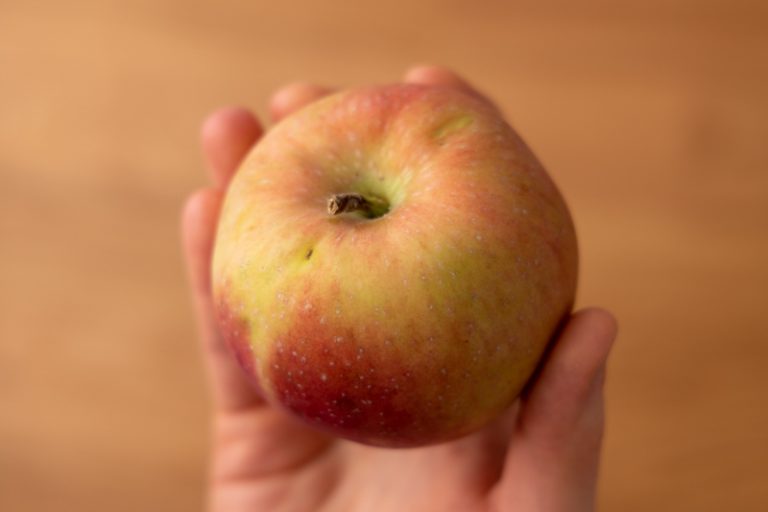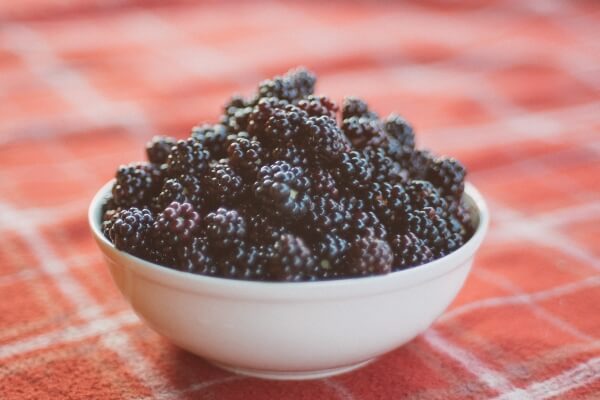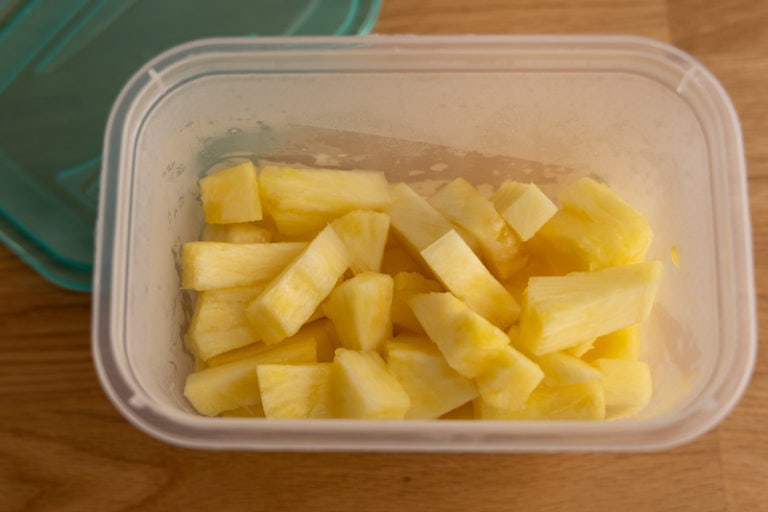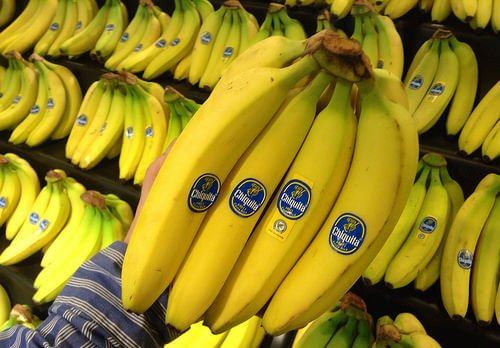How Long Do Dates Last and How to Store Them?
Here’s everything you need to know about the shelf life, storage, and going bad of dates. Learn how long they last, whether you should refrigerate them, and how to tell if they’re spoiled.
You’ve bought dates for the first time, opened the package, and started wondering: how long do dates last?
As it turns out, there are many varieties of dates, some of them sold soft, others dry, and there are semi-dry ones as well.
Naturally, you’re wondering if you can store all of them the same way, or not. Or if the shelf life varies between varieties.
In short, it’s complicated.
In this article, I summarize what I learned about different varieties of dates, their shelf life, ways of storing, and signs of going bad. Read on.
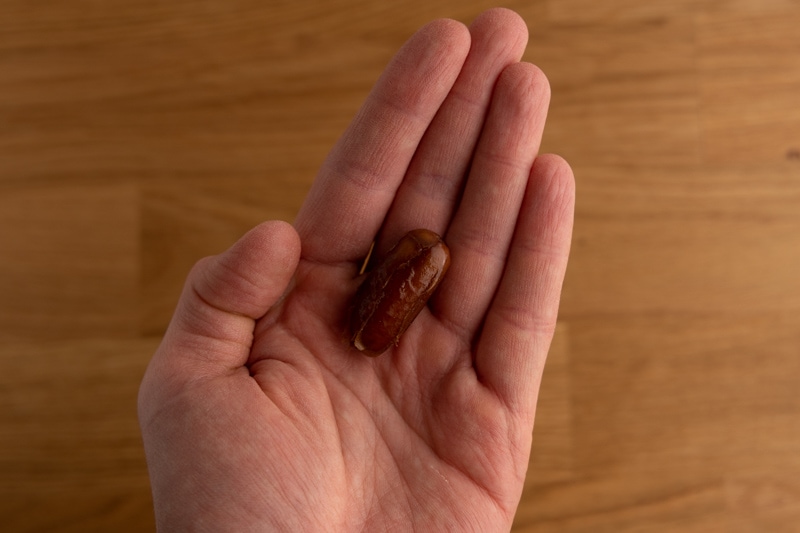
How to Store Dates?
The best way to store dates is to keep them refrigerated in a well-sealed freezer bag or airtight container. But if you’re going to eat them within a couple of weeks, you can store them in the pantry without any ill effects, especially if they weren’t in the refrigerated section in the supermarket.
While there are many cultivars of dates, only a few are really popular. The most popular ones are the Deglet and Medjool varieties.
That means if you’ve bought a package in the supermarket, it’s probably one of the two. But even if you got a different variety, storage guidelines stay pretty much the same.
For starters, keep your dates sealed tightly.
Good protection from the environment is essential for softer dates so that they don’t dry out. So if the original container or bag isn’t resealable, transfer the dates into something that is after you open the package.
Next, there are three options when it comes to storage spots:
- at room temperature
- in the fridge
- in the freezer
Room temperature is okay for short-term storage of about a month or so. Just make sure the fruit sits in a cool and dry place, away from heat sources. The pantry or a dark cabinet in the kitchen are both perfect choices.
For long-term storage, the fridge is a far better option. Some sellers even recommend the refrigerator as the go-to place where you should store dates.
The fridge should be your primary choice if you live in a hot climate or it’s the middle of a hot summer.
The freezer is the nuclear option – great if you need dates to last a really long time, or you simply have no use for them for the time being and don’t want them to take space in the fridge. We’ll cover freezing in detail in a bit.
Do Dates Need to Be Refrigerated?
Dates don’t require refrigeration, but doing so isn’t a bad idea. Storing dates in an airtight container in the fridge helps them retain quality much longer, even up to a year, while they only keep for 1 to 3 months at room temperature.
(Those storage times depend a bit on the variety, of course.)
Refrigeration is also a good idea if you live in a hot and humid climate, or it’s a middle of a hot summer, and you’re not blasting AC all day long. Or if the bag was sitting in a fridge wherever you bought it.
Long story short, decide whether you should refrigerate your dates based on how soon you will use them, how much you care about them retaining the best possible quality, and what time of the year is it.
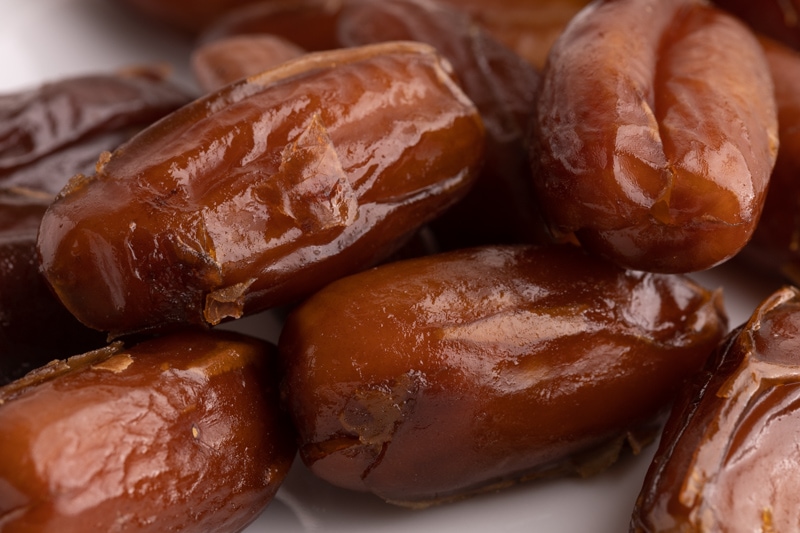
Can You Freeze Dates?
Dates are very high in sugar and low in water content, which makes them an ideal candidate for freezing.
To freeze dates, place them in a freezer bag, squeeze out the air, and seal the bag tightly. After that, you can put the bag in the freezer.
(If the original bag is resealable or you haven’t opened it yet, feel free to use it instead.)
Unlike most fruits, dates freeze well and without any preparation. That’s because they are very high in sugar.
If you look at the nutrition data of a Medjool date, there are 16 grams of sugar in a 24-gram date. That’s quite a lot.
Now, freezing dates this way will make them freeze together, which is okay if you use all of them within a month or so of defrosting. But if you only need a couple of dates once every blue moon, it might be better to freeze them in a way you can easily defrost only a few.
To do that, pre-freeze the dates on a cookie sheet for a couple of hours until they freeze solid. Once they’re there, transfer them to the mentioned freezer bag and then into the freezer.
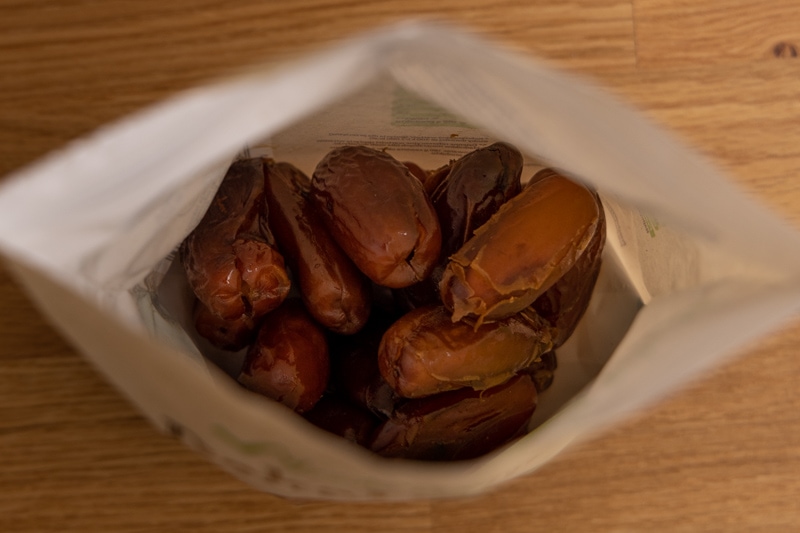
How Long Do Dates Last?
| Pantry | Fridge | |
|---|---|---|
| Dates | 1 – 3 months | 6 – 12 months |
At room temperature, dates can last between 1 and 3 months. If you refrigerate them, they retain quality for 6 to 12 months. For even longer storage, freeze the fruits.
In general, the softer the variety, the shorter the storage time.
So if you’re buying soft ones, they’ll probably keep for only a month or so at room temperature, and it’s much better to refrigerate them. But if you’ve bought a semi-dry or dry variety, they’ll likely retain quality for longer, and refrigeration might not be necessary.
Here are some popular date cultivars:
| Soft | Semi-dry | Dry |
|---|---|---|
| Medjool | Deglet Nour | Thoory |
| Halawy | Dayri | |
| Barhee | Zahdi | |
| Khadrawy |
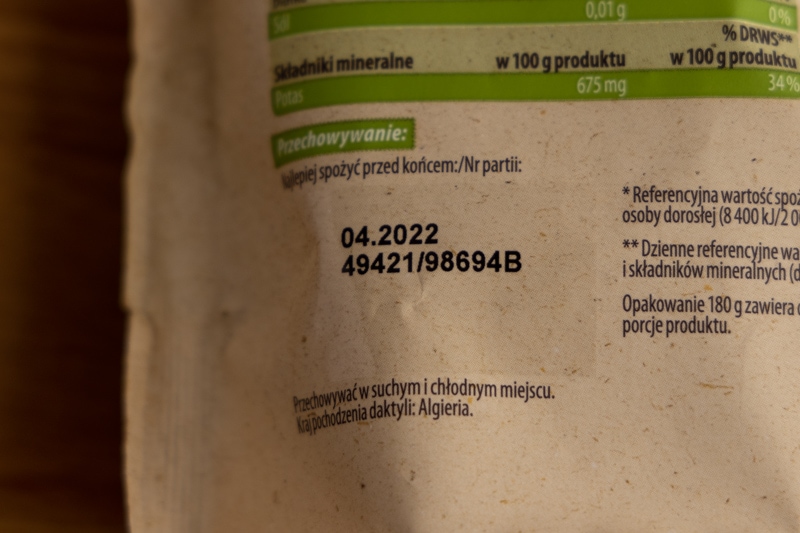
Do Dates Go Bad? How to Tell if Dates Are Bad?
Dates, like any other fruit, go bad. While they have relatively low water content and last quite a long time compared to other fruits, they aren’t impervious to spoilage.
Discard dates if:
- They turned darker or are moldy. While some darkening doesn’t necessarily mean the fruit is spoiled, it’s better to err on the side of caution. And if it’s already moldy, it has to go. One caveat here: white film on the surface is okay (more on that below).
- They smell off. Dates don’t give off a strong aroma, so if yours have suddenly started to smell “funny” or off-putting, you know something is wrong.
- The package is infested. If you leave your dates in the pantry and have a history of pantry bugs invading your food, they might get to your dates too. If you notice any eggs, larvae, or insects in the bag, the dates are done for.
As with all food products, if you notice anything else that doesn’t seem quite right, trust your gut and toss those dates. Better safe than sorry.
Now, let’s get back to that white film that can form on the surface that I said is safe.
That white cover is sugar specs, and their presence is perfectly fine. The same thing happens, though on a larger scale, to dried figs. Check out my article on the shelf life of figs for photos.
Furthermore, the condition is reversible. To “fix” the dates, soak them in hot water or your favorite milk.
Finally, if the appearance of your dates is alright and the smell is like usual, taste one and decide what to do with them based on the outcome.
If the taste isn’t up to your standards, feel free to discard them for quality reasons. Otherwise, they’re okay to eat.
Dates Shelf Life and Storage Summary
Thank you for reading this guide on dates. Let’s recap what we’ve covered above:
- How to store dates? Storing dates at room temperature is okay for the short term. If you need them to retain quality for more than a couple of months, refrigerate them in an airtight container. Freezing is also an option if you need even more time.
- How long do dates last? Dates typically last between a month and three months at room temperature and six months to a year if you refrigerate them. Softer varieties like Medjool don’t retain quality as long as semi-dry and dry ones.
- When to toss dates? Discard dates that are moldy, darkened, smell “funny,” or are infested by pantry bugs. It’s okay if dates have some white specs or white film covers them – that’s just sugar.
Rotten Records: Share Your Snap!
Caught some food past its prime? Upload your photo to “Rotten Records” and help others spot the signs of spoilage. Every image makes our food community safer and more informed!
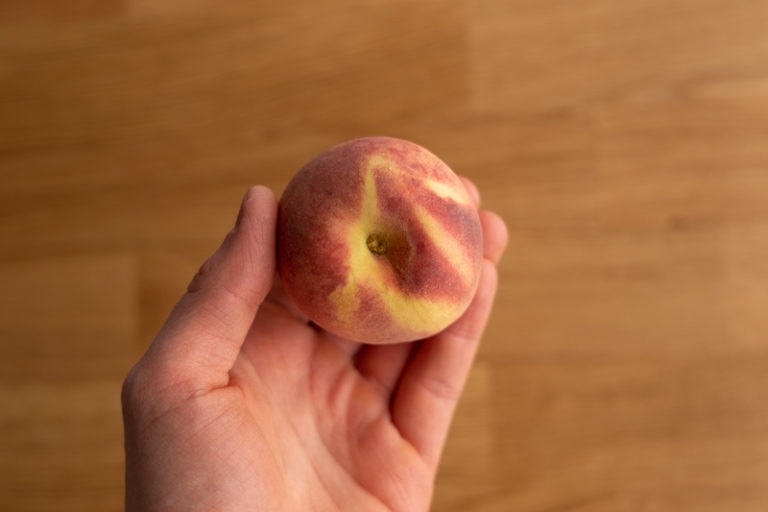
![Can You Freeze Mango? [Whole, Chunks, and Puree]](https://www.doesitgobad.com/wp-content/uploads/Frozen-mango-chunks-768x512.jpg)
